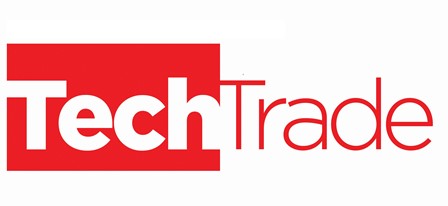
Hiring rates for first five months of 2022 were 27% higher than in 2019
Hiring rates in the first five months of 2022 were on average 27% higher than the same period in 2019, despite the considerable uncertainty in the global economy due to the war in Ukraine, ongoing Covid-19 disruption in major markets and associated inflationary and supply chain pressures.
This is according to the latest Labour Market Pulse report from IDA Ireland, Microsoft and LinkedIn which looked at activity between January and May 2022.
The report provides an overview of the latest insights and trends across the Irish labour market to help inform decision makers across business, academia and public policy.
The Labour Market Pulse report also highlighted the rising importance of digital skills among today’s workforces. New data shows that share of digital skills added by members has risen by almost 20% since 2019. Among the most popular digital skill groups added on LinkedIn last year were digital literacy (44%), data science (24%) and development tools (16%).
While digital skills are on the rise, the share of non-digital skills added by members has fallen by almost 15% since 2019 and by almost 25% since 2015, while digital skills intensity is increasing across a range of non-technology sectors including construction, transportation & logistics, healthcare, corporate services and finance.
Remote work
Almost one in five (19.2%) Irish job postings on LinkedIn in April offered candidates the ability to work from home. As a result, Ireland has more availability of remote roles across seven markets monitored by LinkedIn, with a clear lead on other countries such as the UK (13.7%), United Arab Emirates (12.4%) and Germany (11.8%.) In 2021, Ireland had the highest level of employed people usually working from home in the EU in 2021 at 32%.
Earlier this year, Microsoft’s 2022 Work Trend Index found that many Irish hybrid employees are considering a switch to fully remote work model (20%) and even more remote employees are considering a switch to hybrid work model (42%) over the next year.
The research emphasises what is most important to employees in their work, other than pay, with positive work culture coming out on top (59%), followed by flexible work hours (50%) and benefits that promote positive health and wellbeing (43%).
Evolution of skills
A range of factors such as Covid-19, Brexit and added regulation in the financial services sector has accelerated a range of transformational trends across the labour market. Industries are increasingly going digital, and the rise of remote work is fundamentally changing the nature of how staff collaborate. Similarly, industry developments have led to demand for new skills such as customs regulation and GDPR expertise.
Analysis of the skills added by LinkedIn’s Irish members revealed:
- Impact of Brexit on the Transport & Logistics Sector: Customs regulation was the top skill added by members in this sector in 2021.
- Increased regulatory requirements in Financial Services: Regulatory compliance, General Data Protection Regulation (GDPR) and Know Your Customer (KYC) were among the top 10 skills added by employees in 2021.
- Change in marketing focus in the Media & Communications Sector: New skills such as Search Engine Marketing, Social Marketing and Email Marketing were among the top 10 skills added by employees in 2021.
- Changing technical requirements in the Software & IT Services Sector: Jira, Kubernetes and Python were among the top 10 skills added by members in 2021 contrasting with more traditional skills like SQL, JavaScript and Software Development topping the list in 2015.
“The growth in the share of digital skills added by LinkedIn members and concurrent drop in the share of non-digital skills points to the ever-accelerating digital transformation of our economy and society and the need for today’s workforce to keep pace with this acceleration,” said James O’Connor, Microsoft Ireland site lead and vice president of Microsoft International Operations.
“While people working in Software and IT services added the greatest share of digital skills in 2021, we are increasingly seeing a growth in the need for digital skills among traditionally non-technology sectors, including education, finance, media, construction, and retail. This highlights, more than ever, the importance of external learning pathways and employer supports to empower people – irrespective of age, background, or experience – with the skills to participate fully in Ireland’s digital economy.”
Sharon McCooey, head of LinkedIn Ireland, added: “Our data shows that hybrid working continues to be a significant factor in attracting talent to organisations, which in turn has led to an evolution in how we collaborate, and a natural uptake in the adoption of digital skills and tools.
“This evolution in skills across the Irish workforce is not simply being driven by the pandemic, as a range of other factors like Brexit and increased regulation has seen many professionals upskill in areas like customs regulation, Know Your Customer and GDPR according to insights gleaned from LinkedIn’s 2+ million Irish membership base.”
TechCentral Reporters
Like what you see?

Ireland’s ONLY dedicated news feed for the distribution and retail channel.
Our editorial mix includes channel news, trend analysis, Deals Done, regular ‘Channel Chat’ interviews and strategic product focuses. This is a vital medium through which the technology channel can network and identify new business opportunities.
Want more?







Subscribers 0
Fans 0
Followers 0
Followers